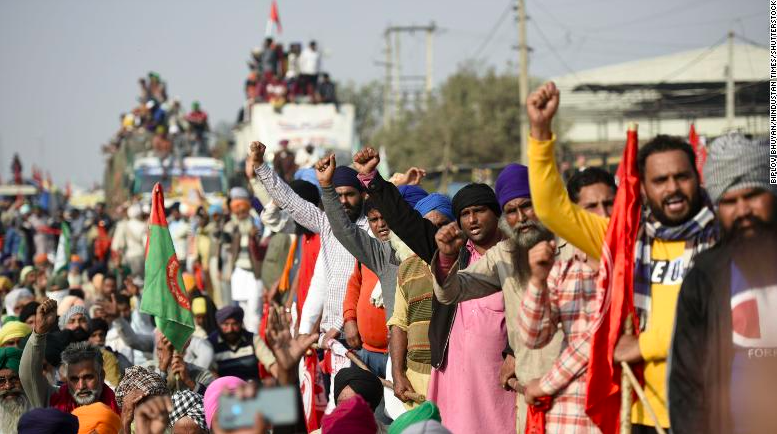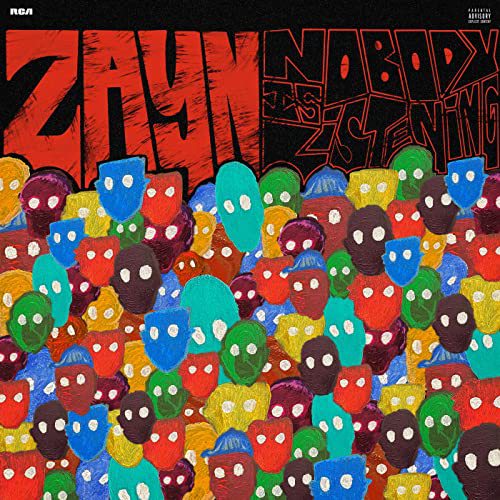The people of India are in the midst of a major crisis that is only continuing to get more international coverage by the day. Punjabi farmers have been conducting peaceful protests since November 26, 2020 to have their voices heard about the new farming bills that were put in place by Prime Minister Narendra Modi and his Bharatiya Janata Party (BJP) administration. The Indian government responded to the protests by shutting down the internet and arresting labor organizers such as Nodeep Kaur.
Punjab, India is referred to as “India’s breadbasket.” More than 60% of the population in India’s labor force and economy depends on agriculture for a living. On September 27, 2020, the Indian government signed three ordinances that directly affect local farmers: The Farmers’ Produce Trade and Commerce Ordinance, The Farmers Agreement on Price Assurance and Farm Services Ordinance, and The Essential Commodities Ordinance. The new farming and deregulations laws provide corporations with far more power over the agricultural sector. During the rollout, Modi claimed that the laws would allow more freedom for farmers to sell directly to buyers and corporations.
Before these bills, farmers sold crops at auction at their state’s Agricultural Produce Market Committee (APMC) with the promise of getting the Minimum Support Price (MSP). These government regulated markets were established in 1964 during the Green Revolution. Now, farmers have to sell directly to buyers and bypass the government to enter into contract farming. The new bills allow traders to stockpile goods and negotiate low prices.
The march that initiated the farmer protests is called “Dilli Chalo” (“Let’s go to Delhi”). In this march, thousands of participants traveled from Haryana to Delhi. The purpose of the march was to fight against allowing massive corporations to exploit farmers by bargaining power and decreasing their overall earnings.
On January 26, India’s Republic Day, tens of thousands of farmers rode their tractors and horses toward Red Fort. Indian farmers wanted to be heard from the government. Yet, the protesters were hit with tear gas and water cannons at the hands of riot police and paramilitary officers.
“We’re worried no one will buy our produce, and that we’ll go into debt,” says Harinder Singh, general-secretary of a Punjabi Farmers Union. “If we can’t stand up for the ones who make food for us, we are dead as a society,” adds Gauravdeep Singh, founder of Initiators of Change.
The new bills could lead to unemployment and more debts. Many farmers are ridden with massive farm debts already. In fact, 86% of farmers are reported to possess only 2 acres of land. The new regulations will cause these smaller farmers to sell their land in order to clear the debts. The only way to protect the farmers would be through the preservation of the “Mandi system”, which is a government run structure aimed at regulating prices lessening the control of private companies.
On February 2nd, musician Rihanna tweeted, “Why aren’t we talking about this?! #FarmersProtest”, causing the months-long protest to go viral on social media for the first time since it began. It encouraged other influencers like Amanda Cerny, Meena Harris, and Greta Thunberg to speak out in support of the farmers as well. The Twitter page for the United Nations Human Rights Office, tweeted: “#India: We call on the authorities and protesters to exercise maximum restraint in ongoing #FarmersProtests. The right to peaceful assembly & expression should be protected both offline & online. It’s crucial to find equitable solutions with due respect to #HumanRights for all.” Although this is a victory for the farmers wanting to be acknowledged, those who support the new laws have shown their anger toward the celebrities.
After four months, the Indian government has yet to offer an amicable solution in response to the outrage. It’s clear that the protesters don’t intend to sit down until the farming bills are entirely revoked.














